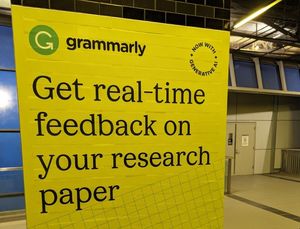During the deliberations of the Library of Congress Working Group on the Future of Bibliographic Control (of which I was a member) there was quite a bit of discussion about ‘webifying’ (or ‘webulating’, to use the phrase of my colleague Stu Weibel) library terminology and authority resources.
What this meant in practice was left vague. What was generally meant was that these vocabularies were addressable with ‘element’ level identifiers and were accessible using web-based protocols. In other words, they would become available as web resources in their own right. Before this, the model has usually been one in which elements are added as text strings to other metadata about information resources.
We have now made a set of controlled vocabularies available as web services for experiment. In effect, these services make a variety of subject vocabularies available as resources on the web in ways that individual vocabulary elements can be found, referenced and recombined in applications. They are ‘webified’.
Here is how they are described on introductory materials produced for ALA:
Terminology Services are web-based services for controlled vocabularies. More than 4.5 million terms, 2.4 million concept links, and 2 million contextual data elements are accessible to your applications.
Each vocabulary is fully indexed and searchable. Vocabulary data is retrievable in multiple representations including the MARC authority format, used by libraries, and the SKOS Core Vocabulary used in Semantic Web applications.
Some of the ways in which such services might be used were reported from a meeting organized by RLG Programs last year. Example uses would be for query expansion (connect search terms to controlled vocabularies, link general to specialist vocabularies, go to broader or narrower terms, etc) or in metadata editors (provide access to various vocabularies without having to locally load them).
A simple example. An application could use MESH through the terminology services to associate a search term ‘giant kelp’ with the ‘technical’ term ‘Macrocystis’ [MESH, Terminology Services], and then use that to search, for example, pubmed or worldcat.
This is a rich collection of data, and it is not primarily aimed at human consumers. It is intended for applications. Further information is available on the project page and access to resources is available from the Prototype.
For an example of one application which uses the services to access subject terms for graphic materials see the Indiana University Digital Library Program Collection Search. Our Indiana colleagues note that all the usual caveats about proof-of-concept apply here: this is not a polished production system. Try searching for ‘grapes’ or ‘wine’.



